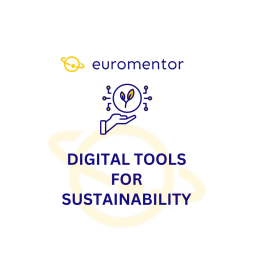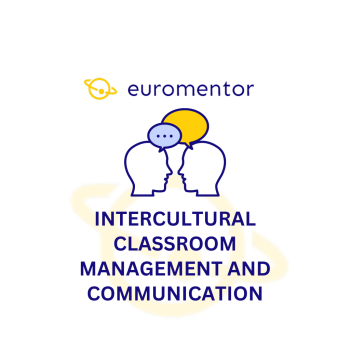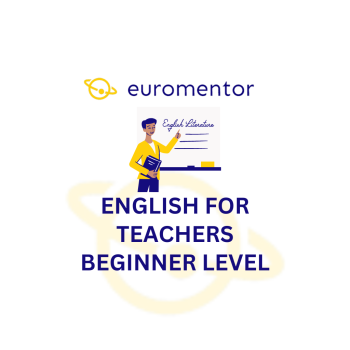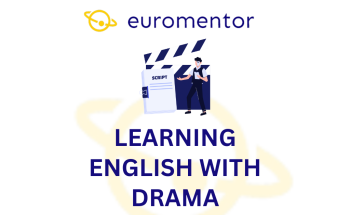
Digital Tools for Environmental Education & Sustainability (Barcelona, Spain)
This is an innovative course specially designed to empower educators with digital solutions to promote environmental awareness and achieve the Sustainable Development Goals (SDGs) within educational settings. Through this course, you'll discover how various digital tools, such as apps and online platforms, can be powerful partners in environmental education and sustainable practices.
Description
- "Digital Tools for Environmental Education & Sustainability" is an innovative Erasmus+ course specially designed to empower educators with cutting-edge digital solutions to promote environmental awareness and achieve the Sustainable Development Goals (SDGs) within educational settings.
- Throughout this course, you will explore a comprehensive range of digital tools, online resources, and educational apps that effectively integrate sustainability principles into various subjects and learning contexts.
- You will also learn how to effectively use digital platforms, social media, and geospatial technologies to create impactful educational content and foster environmental awareness. The course will also explore the role of digital storytelling and data visualisation in communicating complex environmental issues in an engaging and accessible way.
Learning objectives
- Understand the Significance of SDGs: Comprehend the importance of the Sustainable Development Goals (SDGs) in education and their relevance to environmental education and sustainability initiatives.
- Integrate Environmental Education with Digital Tools: Identify and utilise a diverse range of digital tools, mobile applications, and online platforms to enhance environmental education and raise ecoliteracy among students.
- Foster Eco-literacy: Nurture a sense of environmental responsibility and ecological awareness among students through innovative and engaging digital-driven activities.
- Design Interdisciplinary Lessons: Create cross-curricular approaches that seamlessly incorporate sustainability principles, SDGs, and environmental education into various subjects, promoting a holistic understanding of global challenges.
- Cultivate Sustainable Learning Environments: Develop projects and activities that encourage collaborative learning and active student participation.
Methodology & assessment
Interactive Workshops: The course employs a hands-on approach, featuring interactive workshops, group discussions, and collaborative activities.
Peer Learning: Participants engage in peer-to-peer learning, benefiting from the diverse backgrounds and experiences of their fellow educators.
Practical Application: The training emphasises the practical application of concepts learned.
𝐀𝐬𝐬𝐞𝐬𝐬𝐦𝐞𝐧𝐭:
Formative Assessment: Continuous assessment methods are employed throughout the course, including quizzes, group presentations, and reflective journals.
Final Project: Participants are required to develop a final project that incorporates the knowledge and skills gained during the course.
Course Evaluation: At the end of the course, participants are asked to complete an evaluation form, offering insights into the effectiveness of the training program.
Materials, digital tools & other learning resources
- Course Materials: Comprehensive handouts and guides on integrating digital tools in environmental education.
- Digital Tools: Access to innovative platforms and applications that support sustainability initiatives.
- Interactive Activities: Engaging exercises to explore digital resources and enhance learning experiences.
- Case Studies: Examples of successful digital implementation in environmental education.
- Support Resources: Ongoing access to additional materials for continued development
Certification details
Our courses meet 𝐄𝐫𝐚𝐬𝐦𝐮𝐬+ 𝐪𝐮𝐚𝐥𝐢𝐭𝐲 𝐬𝐭𝐚𝐧𝐝𝐚𝐫𝐝𝐬 for Key Action 1 (learning mobility of individuals).
Participants must attend a minimum of 80% of sessions and actively engage in discussions and practical activities to enhance their learning experience.
Upon successful completion, participants will receive a Certificate of Attendance. Learning Agreements and Europass Mobility documents are available upon request at no additional cost.
Pricing, packages and other information
-
Price:400Euro
-
Course package content:
𝐂𝐨𝐮𝐫𝐬𝐞 𝐅𝐞𝐞 𝐈𝐧𝐜𝐥𝐮𝐝𝐞𝐬 (𝐍𝐨 𝐀𝐝𝐝𝐢𝐭𝐢𝐨𝐧𝐚𝐥 𝐨𝐫 𝐇𝐢𝐝𝐝𝐞𝐧 𝐂𝐨𝐬𝐭𝐬)
- Course Materials: Essential handouts, guides, and resources to support learning.
- Administrative Support: Assistance throughout the course for smooth registration and communication.
- Monitoring and Mentoring: Ongoing support from experienced professionals for personalised guidance.
- Coffee Breaks: Refreshments during breaks to facilitate networking and informal discussions.
-
Additional information:Description of the services and activities included in the course package (such as accommodation, meals, transport) or available at extra cost.
-
Cancellation & changes:
As an Erasmus+ course provider, we understand circumstances can change.
𝐅𝐥𝐞𝐱𝐢𝐛𝐥𝐞 𝐑𝐞𝐬𝐜𝐡𝐞𝐝𝐮𝐥𝐢𝐧𝐠:Participants may reschedule or transfer their registration depending on availability.
𝐑𝐞𝐟𝐮𝐧𝐝 𝐏𝐨𝐥𝐢𝐜𝐲:For details regarding the refund policy, please contact us at info@euromentor.es.
𝐎𝐫𝐠𝐚𝐧𝐢𝐬𝐚𝐭𝐢𝐨𝐧𝐚𝐥 𝐑𝐢𝐠𝐡𝐭𝐬:We may transfer participants to an alternative course for organisational reasons.
𝐅𝐨𝐫𝐜𝐞 𝐌𝐚𝐣𝐞𝐮𝐫𝐞:Options available in unforeseen circumstances
-
Additional information:The options and conditions for change and cancellation, and the policy in case of unforeseen circumstances (force majeure).
Additional information
-
Language:English
-
Target audience ISCED:Primary education (ISCED 1)Lower secondary education (ISCED 2)Upper secondary education (ISCED 3)
-
Target audience type:TeacherHead Teacher / PrincipalTeacher Educator
-
Learning time:25 hours or more
Upcoming sessions
Past sessions
More courses by this organiser

Intercultural Classroom Management and Communication (Barcelona, Spain)

English Language Course for Teachers: Building Foundations - Beginner Level (Barcelona, Spain)


